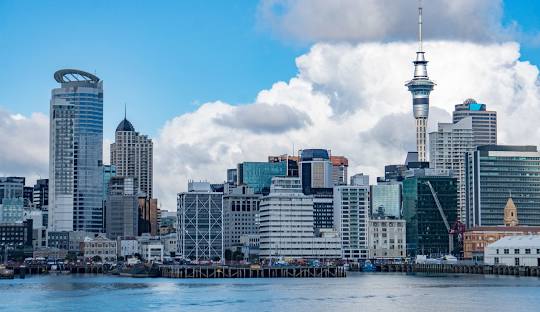
Auckland: A Diverse and Growing City with a Rich Cultural Tapestry
Posted by on
Auckland, New Zealand’s largest and most cosmopolitan city, is a vibrant hub of cultural diversity and rapid population growth. As of June 2023, the Auckland urban area, spanning 605.67 square kilometers, has an estimated population of 1.48 million, representing 28.3% of New Zealand’s total population. This number exceeds the population of the entire South Island, showcasing Auckland’s significance in the country’s demographic landscape.
Historically, Auckland’s population was predominantly European, but the city has seen a rapid rise in Asian, Pacific Islander (Pasifika), and other non-European communities. Between the 2013 and 2018 censuses, the proportion of European/Pākehā residents dropped from 54.6% to 48.1%, marking the first time Europeans no longer made up the majority. Auckland’s Asian population, now nearly one-third of the city's total, is the fastest-growing ethnic group, with strong immigrant communities from China, India, and the Philippines. Auckland is also home to the world’s largest Polynesian population and a significant number of Māori residents.
In the 2018 census, 48.1% of Aucklanders identified as European/Pākehā, 31.6% as Asian, 17.5% as Pacific peoples, and 11.5% as Māori. Other ethnic groups, such as Middle Eastern, Latin American, and African (MELAA) residents, made up 2.5%. The 2023 census shows even more nuanced shifts: Pasifika communities are now the majority in areas like Māngere-Ōtāhuhu, while Asians form the majority in Howick and Puketāpapa. European residents remain the plurality in other areas, while Māori concentrations are highest in Manurewa and Papakura.
Immigration plays a significant role in Auckland’s diversity, with nearly 42% of residents born overseas. Upper Harbour, Waitematā, Puketāpapa, and Howick all have more foreign-born residents than New Zealand-born citizens. The most common countries of origin include China, India, England, and Fiji. In fact, a 2016 study ranked Auckland as having the fourth-largest foreign-born population in the world, just behind Dubai, Toronto, and Brussels.
Auckland’s growth, however, has seen some fluctuations. The city experienced its only recent population declines in 2021 and 2022, largely due to the COVID-19 pandemic and reduced international migration. Despite this, Auckland’s rich cultural tapestry continues to define its character, with immigration flows and the city's increasingly diverse demographic makeup shaping its future as a global city.